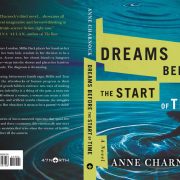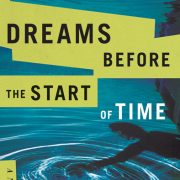The Rift by Nina Allan
Nina Allan’s astonishing novel The Rift came to mind last weekend, and not simply because of its imminent release. (I was fortunate to read this novel pre-publication and it is published today by Titan). It came to mind as I arrived home from my cycling holiday on the west coast of Scotland. I felt as though I’d slipped through a rift of sorts myself, from a parallel universe of spectacular scenery, of quiet roads and CalMac ferries, of clean air, seals and sea otters, where the intensity of the real world seemed unfathomably distant.
 The Rift centres on the disappearance of seventeen-year-old Julie and her reappearance twenty years later to the astonishment of her sister Selena and her mother. Where has Julie been? Does she dare to tell them?
The Rift centres on the disappearance of seventeen-year-old Julie and her reappearance twenty years later to the astonishment of her sister Selena and her mother. Where has Julie been? Does she dare to tell them?
The novel starts out as a compelling contemporary mystery and morphs into speculative territory via a rift, it seems, in the fabric of space. Allan prepares the reader for this with subtlety. For example, there’s passing reference to her father’s interest in alien abduction testimonies. It’s also neatly presaged by Selena and Julie’s teenage in-joke about aliens.
Indeed, Allan foreshadows the alien worlds of Tristane and Dea: “Selena tried to imagine what it would be like to live in a world where everything was the same as it was in reality with one exception.” I knew something fantastical was going to happen when I read that!
Above all, The Rift is a heart-rending novel about being believed, being trusted, and the temptation to hide the truth. Of people going missing and their incomplete stories.
I love how Allan nests a story within a story, within a story, hurtling back and forth on the characters’ timelines, with metafictional elements punctuating the novel. The narrative repeatedly spirals off, though I never lost sight of the compelling central story and main characters. That takes tremendous skill!
And nicely concluded, without me giving anything away, with the characters coping with Julie’s reappearance in their own ways.
A generous book — it allows the reader to enjoy themselves as they identify the links between stories, identify the recurring motifs — it leaves the reader looking at the world anew. Dizzying stuff.
Visit Nina Allan’s website The Spider’s House.








Leave a Reply
Want to join the discussion?Feel free to contribute!